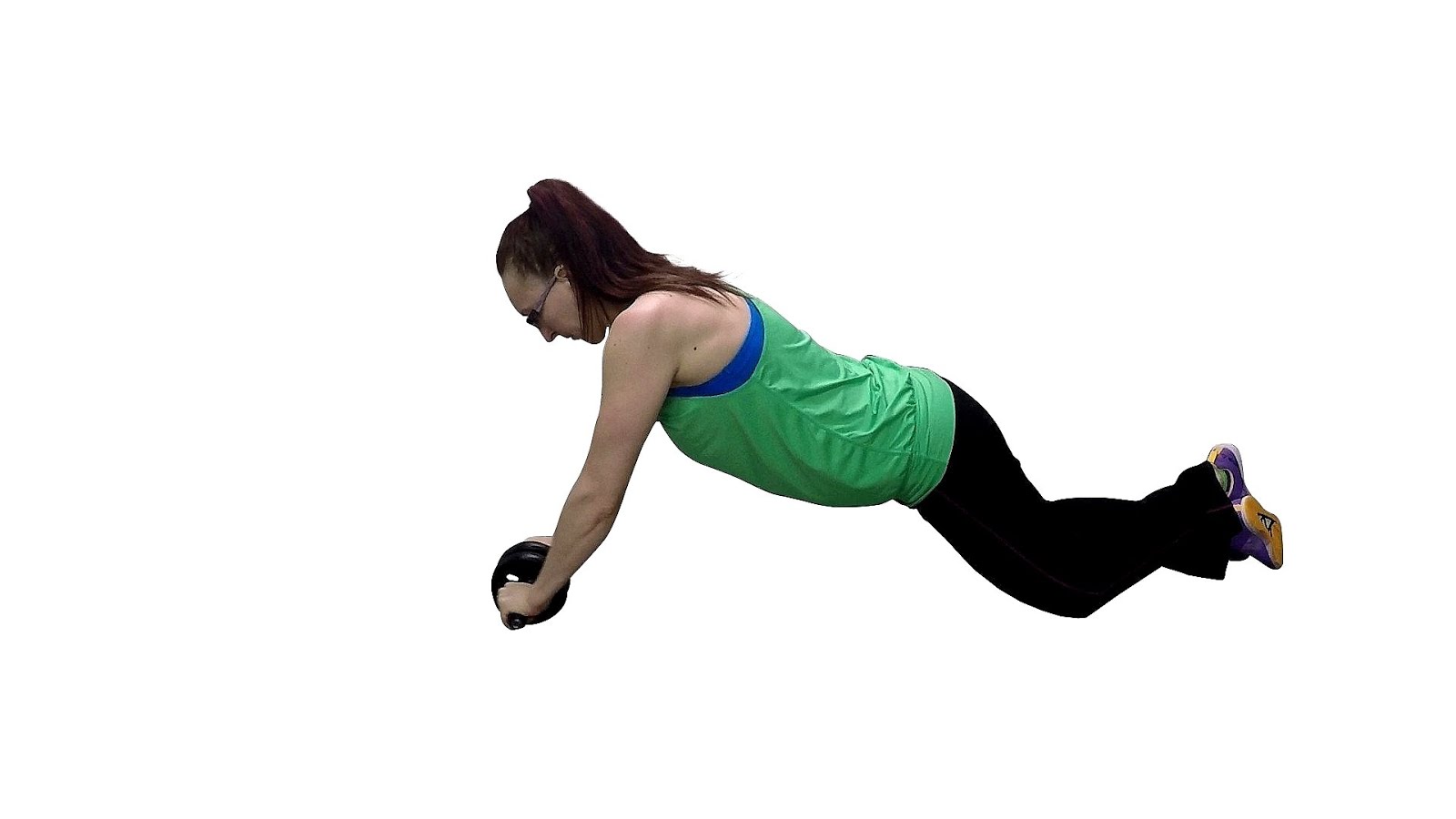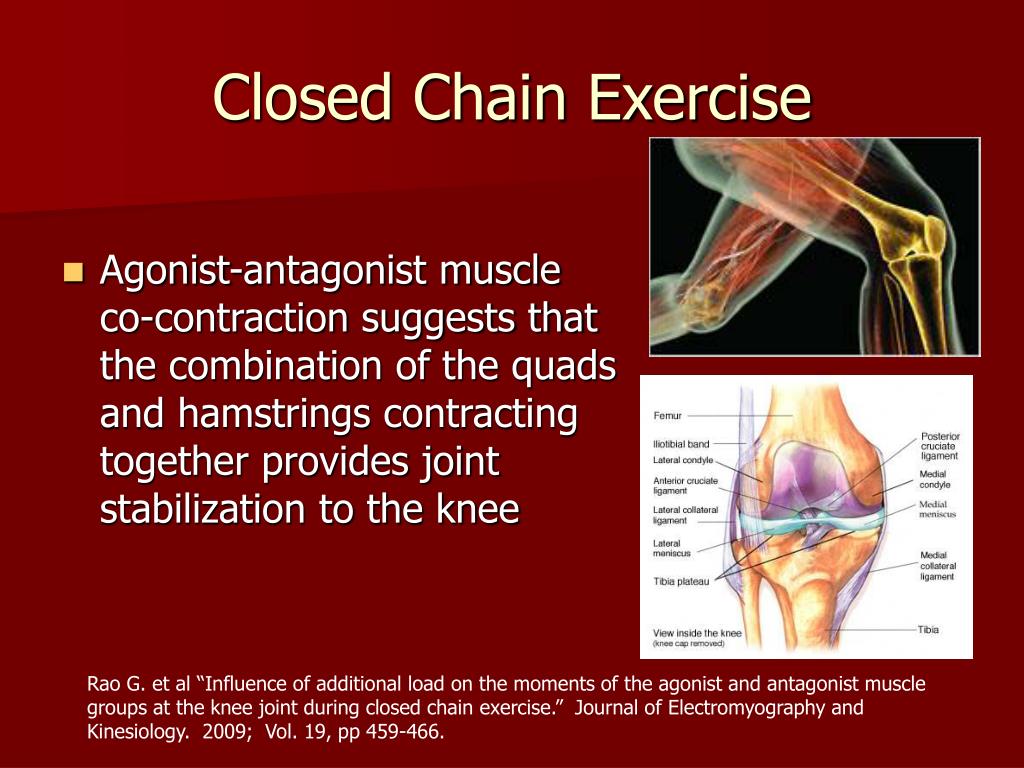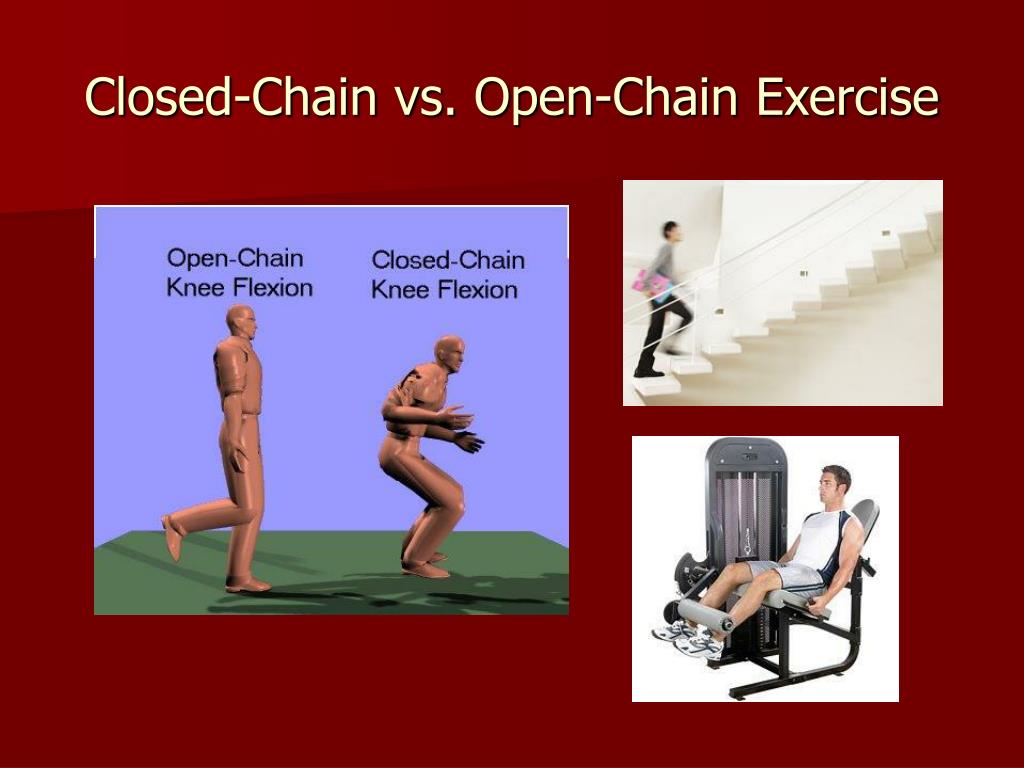
Quadriceps Strengthening in Weight Bearing Postures YouTube
Fitness Your Quick Training Tip The Difference Between Open Chain and Closed Chain Exercises Here's what you need to know about the kinetic chain—and how you can plan your workouts even more.

Closed Chain Exercises For Hip Online degrees
Closed-chain exercises mean your body is pushing against a fixed surface while open-chain exercises are freely moving. These terms are especially relevant in physical therapy, sports medicine, neuro-rehabilitation, prosthetics, orthotics, and other areas of medicine that focus on the musculoskeletal system. fizkes / iStock / Getty images

Closed chain exercises Knee Knee Choices
Closed-chain exercises are safest in the 0- to 45-degree range. In contrast to closed-chain exercises, open-chain exercises (leg curls and knee extension), are most safely carried out from 25 to 90 degrees for patients with patellofemoral pain syndrome ( 25, 33 ). These researchers agree with the potential for excessive pressure when performing.

What Are Open And Closed Chain Exercises Which is Best?
Closed chain exercise tends to emphasize compression of joints, which helps stabilize the joints. Try these 6 closed chain exercises for knees and legs.. Quad Dips. Stand with your feet shoulder width apart, using a door frame or counter top for balance, at first. Slowly flex your knees about 20 to 30 degrees and hold for 10 seconds.

PPT Closed Chain Exercise and Knee Pathologies PowerPoint
Introduction The Kinetic Chain is a method used to describe human movement, divided into either an open kinetic chain (OKC) or a closed kinetic chain (CKC). In an open kinetic chain, the part farthest from the body (e.g., foot or hand) moves freely and isn't fixed to an object. [1] In a closed kinetic chain, this part is stabilised.

PPT Closed Chain Exercise and Knee Pathologies PowerPoint
In closed kinetic chain movements, the patella remains relatively in one place within the quadriceps tendon; this means the femur moves on the patella. The optional 11-minute video in resources section provides a more detailed review of open versus closed kinetic chain exercises. Quadriceps and Patellar Control [edit | edit source]

Figure 1.1 from The effect of open and closed kinematics chain
CLOSED CHAIN LE STRENGTHENING Home Exercises BALL TKE - TERMINAL KNEE EXTENSION Start in a standing position with a ball behind your knee and against a wall. The knee should be partially bent. Next, press the back of your knee against the ball while you try and straighten your knee. Repeat 10 Times Complete 1 Set Hold 10 Seconds

Honors Symposium 2021 Open Chain Exercises vs. Closed
Thank you. Closed chain exercises for hypermobility effectively increase stability and reduce pain and injury. The good thing about these exercises is they involve the distal end of the limb being fixed to the ground or a stable surface.

Static open chain quadriceps strength L YouTube
The ACL prevents anterior translation of the tibia on the femur in open kinetic chain. The ACL also prevents posterior translation of the femur on the tibia in closed kinetic chain. Plot twist: This means that you stress the ACL during both OKC and CKC exercises. It is a well-accepted fact in the rehabilitation community that anterior shear.

Pin su exercises
In closed-chain exercise, the limb is stationary while the body moves. For example, a squat is a closed-chain exercise because your feet stay stationary while your quadriceps do the work. In contrast, a seated leg extension is an open-chain maneuver, because your seated body is still, but your leg moves as you extend it.

Closed Chain Lower Quad Stretches YouTube
The anterior cruciate ligament (ACL) is a key structure in the knee joint kinematics, as it resists anterior tibial translation and rotational loads. The ACL provides approximately 85% of the total restraining force of anterior translation. It also prevents excessive tibial medial and lateral rotation, as well as varus and valgus stresses [1].

Closed chain exercises for patellofemoral disorders YouTube
12 Effective Open And Closed Kinetic Chain Exercises Plan your workouts strategically with multi-joint exercises that enhance functional movements. Reviewed by Hannah Shine, AFA Certified Personal Trainer Written by Himanshi Mahajan, BSc (Life Sciences), Certified Health & Nutrition Life Coach

Hip Mobility is important for Human Movement and essential for Peak
While open chain exercises that allow the leg to move freely are often used in the beginning of rehabilitation, progression to closed chain exercises that involve keeping the feet planted on the ground can safely be performed when irritation behind the kneecap has decreased and activation of your quadriceps and glutes muscles has improved.

Preventing hamstring injuries on the gridiron Lower Extremity Review
Introduction Closed Kinetic Chain (CKC) exercises or closed chain exercises are exercises or movements where the distal aspect of the extremity is fixed to an object that is stationary.

Closed Chain Quadriceps Muscle Strengthening Tutorial ONLINE PHYSIO
Lower Extremity Strengthening Home Exercise Program Closed Chain, Standing Quadricep Set (quadriceps are the front thigh muscles): Standing Heel strike — leg forward, ankle bent, heel contact, tighten quad Midstance — with slight bend in knee and foot flat on the floor, tighten quad

Quadriceps Strengthening with Flexed Knees (Non Weight Bearing) YouTube
Try it free.* Live TV from 100+ channels. No cable box or long-term contract required. Cancel anytime. Dismiss Closed chain exercises can be great for working a muscle in a dependent.